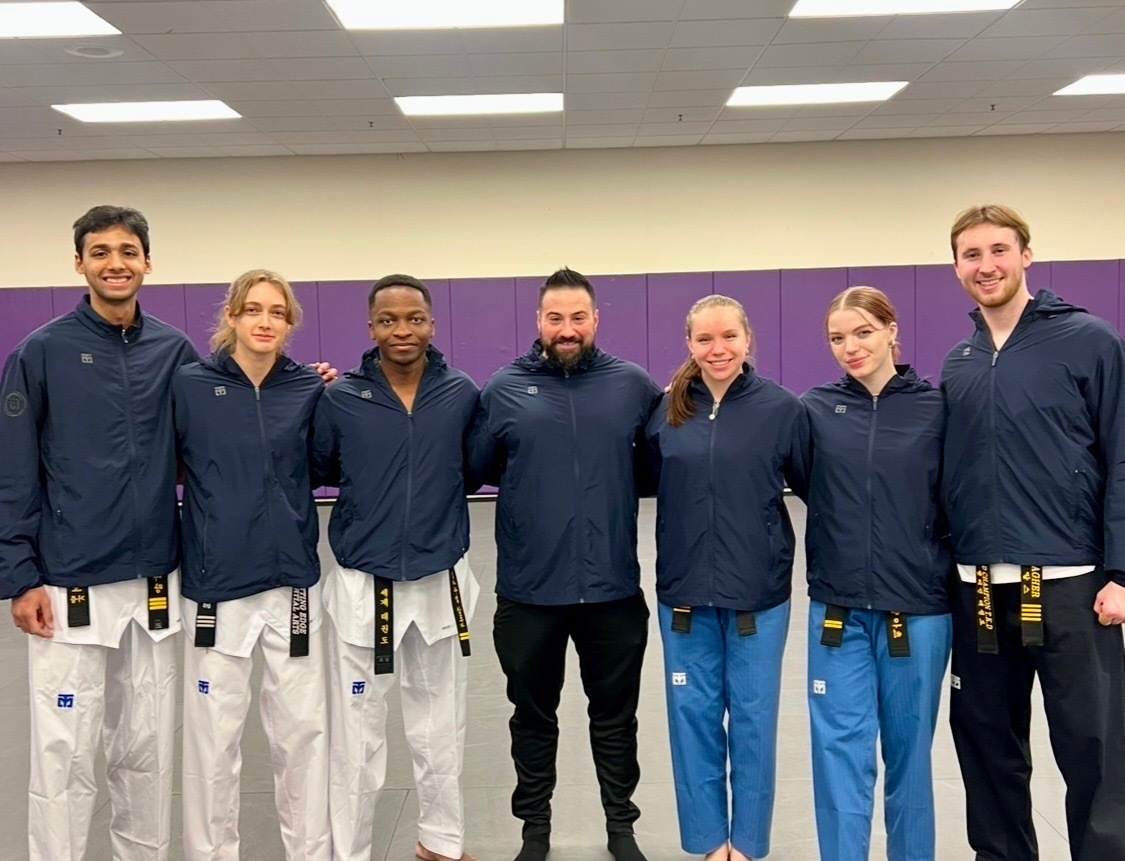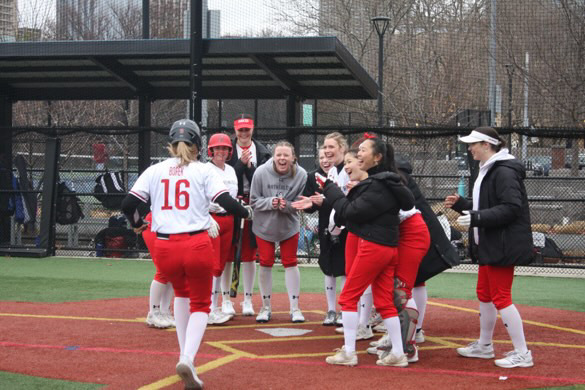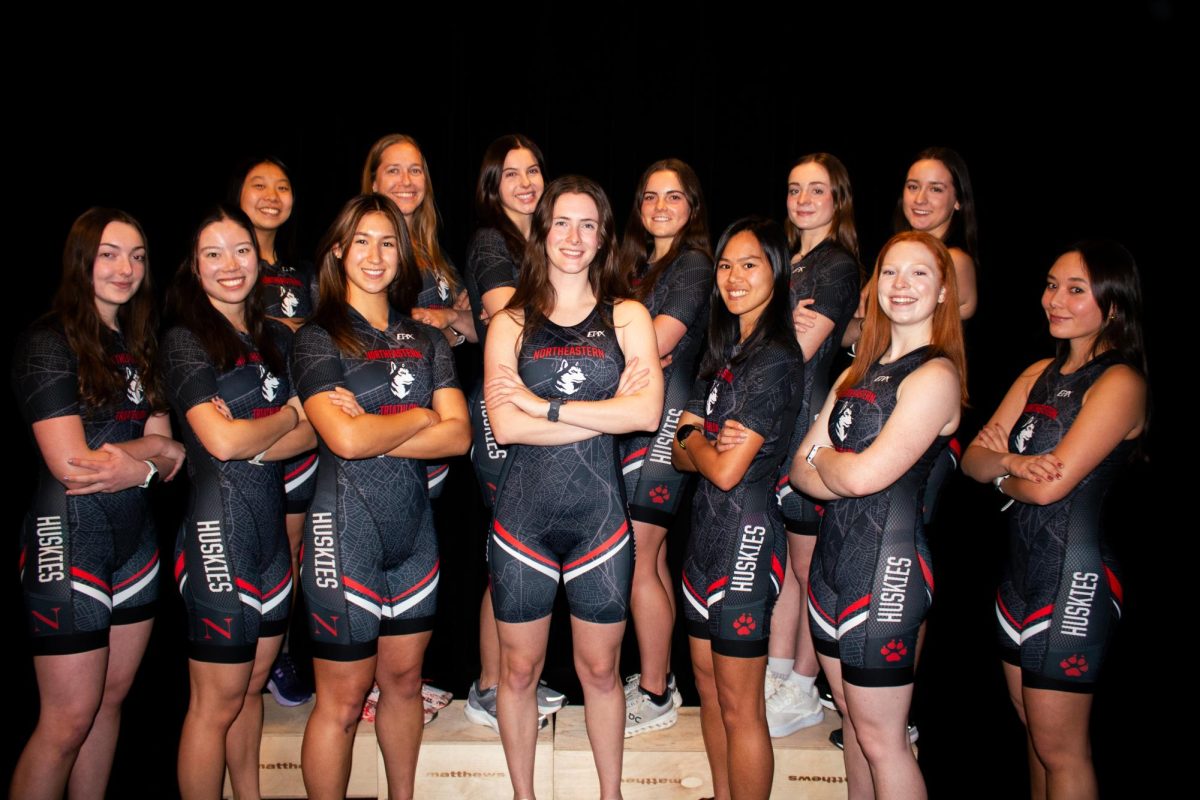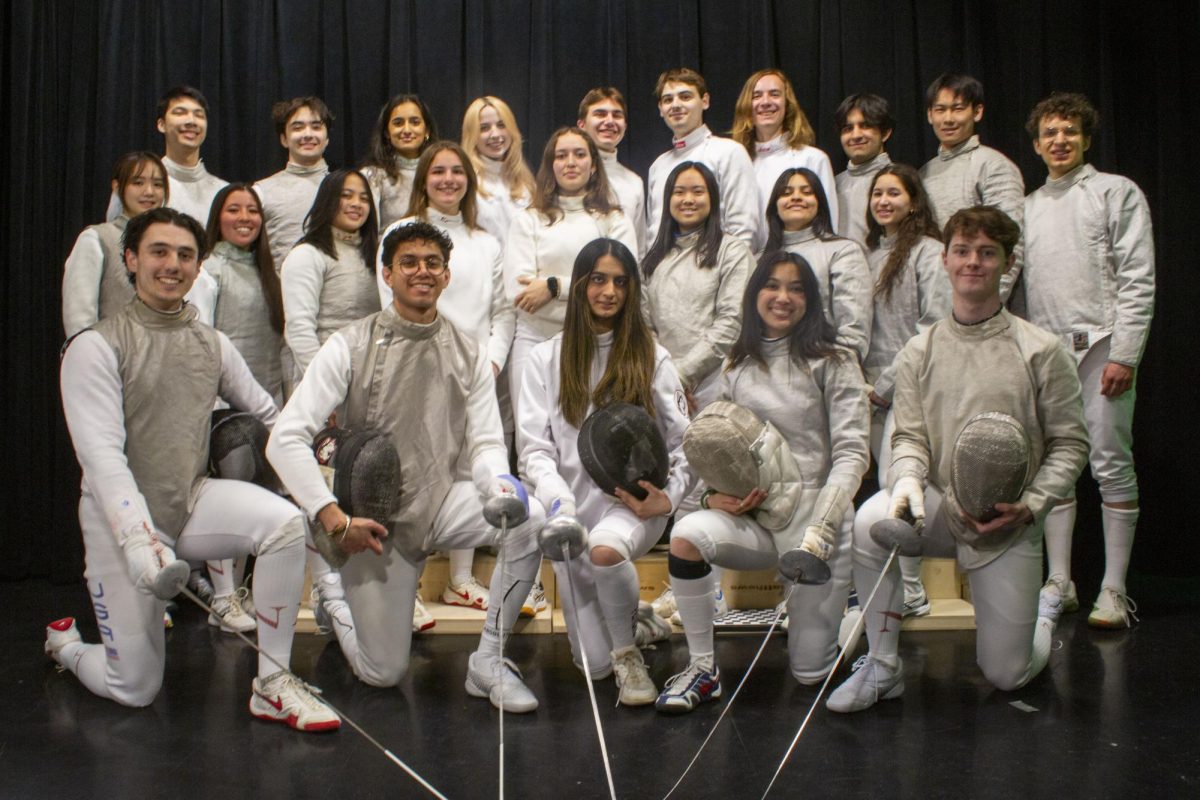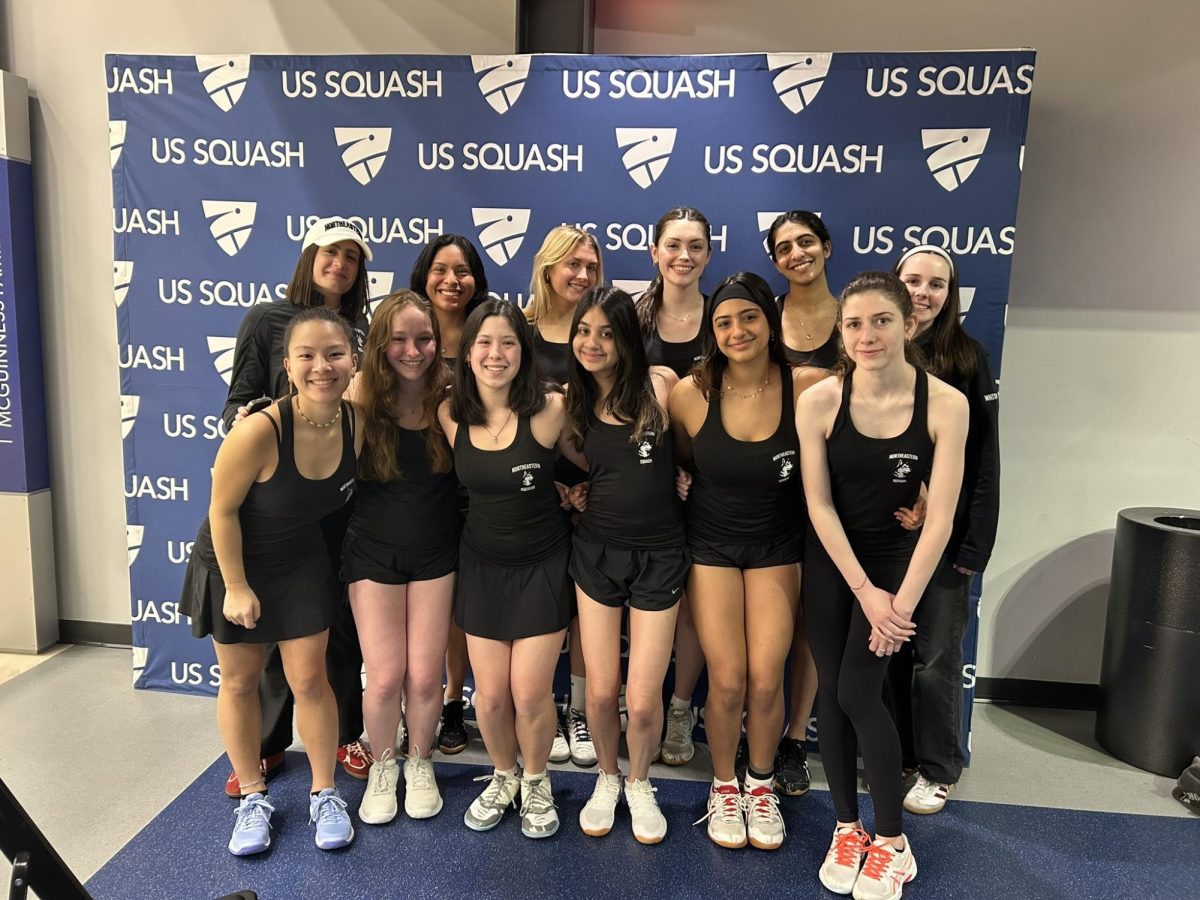Northeastern’s dominance in taekwondo might fly under the radar during its practices at Squashbusters, but the club is leading regionally.
The Northeastern club taekwondo team has six All-Star athletes among its diverse competitive programs. From poomsae techniques to sparring, this club’s legacy of excellence sets its young athletes apart as top-ranked competitors in the Eastern Collegiate Taekwondo Conference, or ECTC, one of six regional conferences.
Led by president Taylor McMordie, a fourth-year behavioral neuroscience major, and vice president Abhishek Narang, a fourth-year electrical and computer engineering major, the Northeastern taekwondo club team is more competitive than ever, currently leading the ECTC Division I league with a total score of 1,036.
The All-Star roster is divided into two techniques: poomsae and sparring. Poomsae are sets of pre-arranged defence and attacking movements with no opponent, while sparring is the testing of martial art skills against another person in a controlled environment. The most well-known sparring style is full contact, as it is part of the taekwondo style practiced at the Olympics.
Three Northeastern team members earned spots on the sparring roster, while the other three All-Stars were selected for poomsae.
The Northeastern club team is a World Taekwondo style club, or WT, which means it competes in all competitions across disciplines.
During her first year at Northeastern, McMordie transitioned from International Taekwon-Do Federation sparring to WT sparring.
“WT sparring is currently the more mainstream style and what you see in the Olympics,” McMordie said.
McMordie started practicing taekwondo at a very young age. During her first year at Northeastern, she joined the club without knowing how much involvement she wanted to put in. After finding a community in the sport, she reconsidered and hasn’t looked back.
Each team member’s pathway to discover and navigate taekwondo is unique.
McMordie was not the only one who recently adapted to a brand-new skill. After studying abroad as part of the N.U.in program during her first semester, Sarah Rescsanski, a third-year mechanical engineering major, landed on the Boston campus, where she tried out different taekwondo styles.
While being abroad, she expanded her athletic repertoire as a taekwondo athlete and discovered new techniques. Back in Boston, she focused on practicing WT in order to meet the club’s standards.
“I think I jumped up out of my seat and screamed, I was so excited,” Rescsanski said, referring to the moment she saw her name on the All-Star list.
Last year she came close. “It was the first time I was trying to make the team, and I felt like I had a really good case coming in. I was a bit disappointed to not make it [on the team], so it discouraged me a little bit,” she said. She returned this season determined to earn her spot on the roster.
Rescsanski is currently working at a co-op in Texas. With her absence from Boston, she and her coach have gotten creative, continuing her training via Zoom calls.
“Even if you’re not able to come to Boston, they help you and allow you to still have a schedule so you can continue improving even while you’re not there,” Rescsanski said.
Narang started Taekwondo in his home state of New Jersey after a taekwondo studio opened near his house. He and his group of friends gave the sport a try and a few months in, they began competing at the state level.
The athletes have had to overcome injuries and disappointing past performances to get to where they are now.
The moment Narang saw his name on the All-Star list, he reminded himself of the hard work he had to put into earning his spot on the roster.
“It was nice to see that after failing the previous year, all the extra work I put in, actually had some sort of results, and that was recognized by other people too,” Narang said.
Despite the fact that Brian Meagher, a fourth-year international affairs major, is a triple All-Star and competes internationally, being named once again is still something he holds close. After suffering from a herniated disk injury, he was able to recover — both mentally and physically — for this important season, which made his success even more meaningful.
All six athletes earned their spots through relentless practice.
Competing at a higher level with the Northeastern team has increased fourth-year history, culture, and law major Sam Walker’s training schedule from three to four practices a week to six.
“I know that’s something that a lot of us share, just with the level of competition that we’ve gotten to at this point and the push for excellence,” Walker said.
Walker began taking taekwondo classes at a studio just a 10-minute walk from her home after being inspired by the Disney show “Kickin’ It.” She thought about giving taekwondo a shot since it sparked her interest, and from there, she has worked her way up the ladder to improve her poomsae skills.
Walker will be graduating this spring, but hopes to keep in touch with the team. The team has managed to bring a diverse group of backgrounds and skills to become one of the most dominant teams in the country, and it’s not slowing down anytime soon, hoping to potentially pursue international competition soon.
This year’s National Collegiate Taekwondo Championships, or NCTA, championship will be held in Marlborough, Mass. from April 11 to 13 at the Royal Plaza Trade Center. The championships will also host the poomsae team trials April 11 for the 2025 Summer World University Games to be held in Rhine-Ruhr, Germany July 16 to 27. The sparring team trials for the Summer World University Games will be held in Texas March 16.


